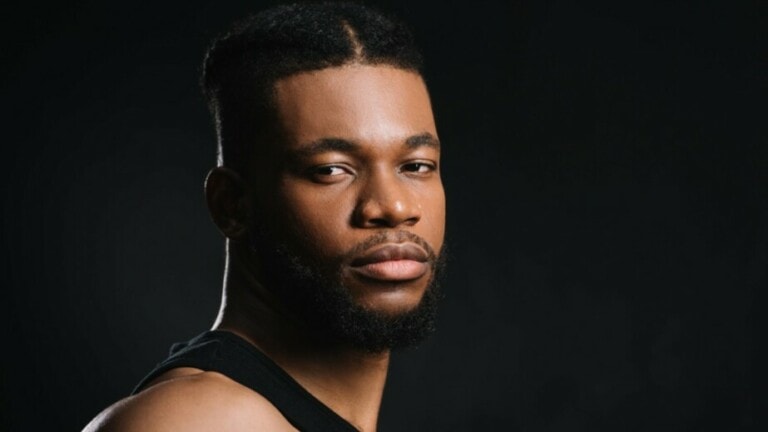15 Famous People With Dyslexia Who Have Changed Our World

Famous people with dyslexia span various industries, such as science, entertainment, business, and art. They illustrate that dyslexia, often misunderstood as a barrier, can be a source of creativity, resilience, and innovative thinking.
Here, we shine a light on 15 remarkable individuals who have not only thrived in their respective fields and achieved great things, but some of whom have also openly shared their experiences with dyslexia.
What Is Dyslexia?
Dyslexia is a specific learning disability that impacts reading fluency, decoding, and spelling, leading to difficulties in reading comprehension. Challenges in phonological awareness, verbal memory, and verbal processing speed characterize this condition.
Symptoms of dyslexia, including difficulty rhyming and learning letters and sounds, can often be observed in preschool, but it is more commonly diagnosed in elementary school. Some people with dyslexia don’t discover the condition until adulthood.
Raising awareness about dyslexia is crucial for understanding its signs and symptoms, which might include delayed language development, struggles in learning to read, and difficulties with spelling and handwriting. Early recognition of dyslexia can lead to timely and effective support strategies.
Dyslexic Brains Work Differently
It’s essential to recognize that having dyslexia does not mirror an individual’s overall intelligence. It presents a unique cognitive profile where individuals might face obstacles in phonemic awareness, reading, and writing yet often excel in creative problem-solving and spatial awareness. Their brain processes information differently, which can be an asset in various contexts.
Dyslexia is a lifelong condition, yet its impact is not static and can change over time. With appropriate support and intervention, individuals with dyslexia can thrive across diverse fields, showcasing the value of neurodiversity and redefining conventional perceptions of literacy and intelligence.
Dyslexia Fosters Creativity and Innovation
Dyslexia, often perceived as a hindrance in traditional educational settings, can foster extraordinary creativity and innovation. This neurological difference, while it may complicate conventional reading and writing, often endows individuals with unique abilities and skills, such as:
- Creative Problem-Solving: Dyslexia often encourages unique, non-linear thinking patterns, leading to innovative and creative problem-solving strategies.
- Spatial Awareness: Many individuals with dyslexia exhibit superior visual-spatial abilities, excelling in tasks that require three-dimensional thinking.
- Entrepreneurial Spirit: The resilience and adaptability developed by individuals with dyslexia often lead to entrepreneurial tendencies.
- Big Picture Thinking: Many with dyslexia can see connections and solutions others might overlook. Their ability to think in non-linear, multidimensional ways often leads to groundbreaking ideas.
- Intuitive Understanding: Dyslexics are often adept at intuitively grasping the ‘big picture’ and understanding concepts and ideas holistically.
- Artistic Talent: Many people with dyslexia have demonstrated exceptional talent in visual arts, music, and other creative domains.
- Empathy and Interpersonal Skills: Dyslexics often show high levels of empathy and possess strong interpersonal skills, allowing them to excel in people-oriented professions.
- Resilience and Adaptability: Confronting and overcoming challenges from an early age, those with dyslexia often develop high levels of resilience and adaptability.
- Storytelling Ability: Despite struggles with reading and writing, many individuals with dyslexia excel in verbal storytelling, often displaying remarkable descriptive and narrative skills.
The creative advantage of dyslexia is evident in the disproportionate number of successful entrepreneurs, inventors, artists, and thinkers with dyslexia. Their success stories underscore the idea that dyslexia, far from being a simple impediment, can be a powerful driver of innovative thinking and creative brilliance, challenging the conventional wisdom about learning and intelligence.
Why Learn About Famous People With Dyslexia?
Discovering the stories of famous individuals who have triumphed over the challenges of dyslexia offers more than just a glimpse into their remarkable lives; it is a powerful source of inspiration. Understanding their journeys sheds light on how the mind works and highlights the importance of recognizing different forms of intelligence and creativity.
Provides Positive Role Models to Children With Dyslexia
Famous dyslexics often become role models, showing that difficulties with reading, writing, and remembering do not limit one’s ability to achieve greatness. This knowledge empowers those with dyslexia, showing them they are in excellent company.
Children with dyslexia can find inspiration in these heroes who understand and share their struggles. Their stories provide hope and inspiration to children and adults with dyslexia, bolstering self-esteem and encouraging a more positive self-perception.
Encourages Early Intervention for Children With Dyslexia
Understanding dyslexia through the lives of successful individuals can lead to better teaching strategies, accommodations, and support systems in both public and private school settings. It emphasizes the importance of early diagnosis and intervention, including specialized reading instruction, tutoring, and assistive technology.
For parents and educators with a dyslexic child, learning about famous people with dyslexia may encourage them to seek out early intervention, support, and an earlier diagnosis. Identifying and supporting dyslexic learners at an early age can significantly enhance their chances of success.
Builds Inclusion of All Types of Learners
Learning about famous people with dyslexia is pivotal in changing the narrative around this condition. It breaks down the stigma associated with learning disorders and highlights the potential for success despite academic hurdles. By recognizing and celebrating neurodiversity, we can promote a more inclusive society that values all types of learners.
15 Famous People With Dyslexia Who Have Made a Difference in Our World
1. Albert Einstein
Often described as a late talker, Einstein struggled with communication and social interactions in his early years. He loved math and science but struggled with grammar and consistently had problems spelling.
Einstein was never diagnosed with dyslexia, but he saw the world from a unique perspective. His unique thinking approach, potentially influenced by dyslexia, contributed to his groundbreaking scientific insights.
2. Henry Ford
Founder of the Ford Motor Company and producer of the first Model T, Ford was one of the first to create assembly line manufacturing, revolutionizing how products are made. Ford had difficulty reading and with schoolwork but excelled in engineering.
3. Richard Branson
Branson has spoken openly about his dyslexia, highlighting how it affected his education and helped him think creatively in business. He attributes his success to his ability to delegate tasks that he finds challenging due to his dyslexia. While Branson left school at age 15, he built a successful business empire.
4. Steven Spielberg
Diagnosed with dyslexia as an adult, Spielberg struggled in school and was often bullied. He found solace in making movies, a passion that became a successful career. He views his dyslexia as a challenge that makes him more imaginative and resilient.
5. Whoopi Goldberg
Goldberg’s dyslexia went undiagnosed during her school years, leading to significant challenges. As an adult, understanding her dyslexia helped her embrace different methods of learning and communication, aiding her diverse and successful career in entertainment.
6. Leonardo da Vinci
Historical records and analyses of da Vinci’s notebooks suggest he may have had dyslexia, as evidenced by his mirror writing and spelling inconsistencies. Although some say he mirrored his writing so that others could not easily read it, there is no doubt that his inventive mind and exceptional visual-spatial skills are often highlighted as traits associated with dyslexia.
7. Cher
Cher struggled in school and was often misunderstood before her dyslexia was diagnosed. She has spoken about her challenges in reading scripts and how she developed methods to memorize and understand her roles.
8. Orlando Bloom
Bloom was diagnosed with dyslexia at a young age. He has been vocal about the challenges it presented in his education but also credits it for helping him develop a strong work ethic and creative problem-solving skills, essential to his acting career.
9. Tom Cruise
Cruise’s dyslexia made his early education difficult, and he struggled with reading and writing. He has been open about his struggles and how he learned to cope and adapt, which eventually helped him succeed in his acting career.
10. Keira Knightley
Diagnosed at a young age, Knightley faced significant challenges in school due to dyslexia. This English actress used her passion for acting to motivate herself to improve her reading and writing, using scripts as practice material.
11. Dav Pilkey
This famous American author and illustrator of children’s literature claims dyslexia is his superpower. Because of his experience with dyslexia, he has become a more effective writer and role model for kids across the globe.
12. Patricia Polacco
Polacco, another famous children’s author, didn’t learn to read until she was 14. She suffered from undiagnosed dyslexia until a teacher recognized that she learned differently and taught her how to read.
13. Anderson Cooper
The famous journalist and CNN anchor struggled with dyslexia growing up but did not let it hold him back. He has spoken about how his unique perspective and ability to think differently have helped him succeed in journalism.
14. Pablo Picasso
Though never officially diagnosed, many historians and experts believe that Picasso had dyslexia. His use of unconventional perspectives in his artwork and his tendency to think outside the box align with many traits commonly associated with dyslexia.
15. Robin Williams
The late, beloved actor and comedian struggled with dyslexia. He used comedy to cope with the challenges presented in reading and writing, ultimately becoming one of the most successful entertainers ever.
Other Famous People With Dyslexia
These famous people, along with countless others like Jennifer Aniston, Tom Holland, Steve Jobs, Mohammad Ali, Octavia Spencer, Agatha Christie, Henry Winkler, and George Washington, have demonstrated that dyslexia is not a barrier to success. It is a unique trait that can bring about exceptional skills and abilities in various fields.
Their journeys underscore the importance of recognizing and embracing different intelligence and learning styles. Dyslexia can be a catalyst for developing unique skills, fostering resilience, and unlocking innovation and creativity.
This article originally appeared on Wealth of Geeks.






